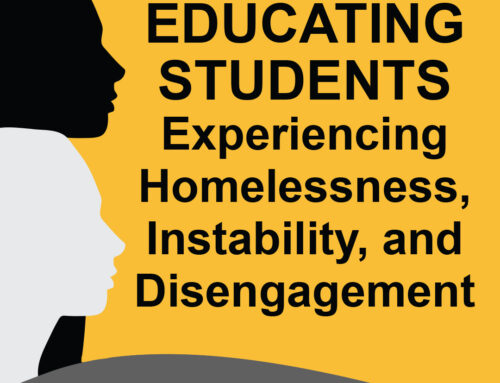@rubyKpayne
Loss is an unavoidable part of life, but when we encounter loss and grieve, we don’t have to lose hope. Consider the following stories and strategies.
A student story
I was working with an 18-year-old boy, and I asked him what his life would be like when he was 25. He said, “I’ll be dead.”
I said, “How do you know that?”
He said, “Everyone like me is dead.”
An adult story
When I went through my divorce and then had to buy back from my former husband half the company I had started, the grief was unrelenting for several years. I had worked so hard to make the company and the relationship work that when they were both back to the very basics—no marriage/relationship and starting over with the business—I lost my purpose and motivation. Why work so hard if it is just going to disappear? I started thinking, “Why bother? To work so hard for so long (31 years on the marriage and 10 years on the business) and then have it ‘blow up’ in your face, why even bother?”
Another adult story
A friend of mine recently lost her husband to cancer. At the funeral she made this comment to a friend: “I am nobody without him. He was so interesting and made life so much fun. I am so boring.”
The unspoken message was: “What value does my life have for me now?”
Grieving
The stages of grief developed by Kübler-Ross are fairly well known—denial, anger, bargaining, depression, and acceptance. But what is discussed far less often is what grieving does to purpose, motivation, and then hope.
If you have cared for someone who is dying, or if you have worked hard on a relationship or a business/career and it ends, there is such fatigue, such loss, that life itself seems to have little meaning except struggle. Furthermore, a future with anything else or anyone else looks hopeless and not worth the effort.
Compound grief
If several losses occur in a relatively short time, then the loss of purpose and motivation is multiplied. It becomes harder to recover from grief because new losses accumulate. The three choices are to flow (survival or acceptance), flee (avoidance and/or addiction), or fight (be angry). Eventually, the thinking is that there is nowhere to turn.
So what can you do?
- Accept and grieve the loss.
- Understand that for every loss there is a gain. I made myself a little chart after the divorce that looked like this:

- Be grateful for what we do have. Every day I make a list of three things for which I am grateful. Sometimes it is simply a cup of coffee.
- Understand that every challenge is also a new opportunity to create something new.
- Understand that loss is a part of life. It happens to everyone all of his/her life. Losses may include the death of a loved one, not being able to drive anymore, not getting that job or promotion you really wanted, a failed business, a divorce, racial or gender discrimination, moving to another state, losing your home, dementia, etc.
Conclusion
There is a myth that if you live your life correctly, you will not experience loss—that losses are really about failure. Not true. Losses are as much a part of life as the ebb and flow of water is a part of the ocean.
It is our interpretation of losses, and our ability to move through them, that determines the extent to which we have a meaningful, fulfilling life in which we maintain purpose, motivation, and hope.
Ruby K. Payne, Ph.D. is the founder of aha! Process and an author, speaker, publisher, and career educator. Recognized internationally for A Framework for Understanding Poverty, her foundational book and workshop, Dr. Ruby Payne has helped students and adults of all economic backgrounds achieve academic, professional, and personal success.








